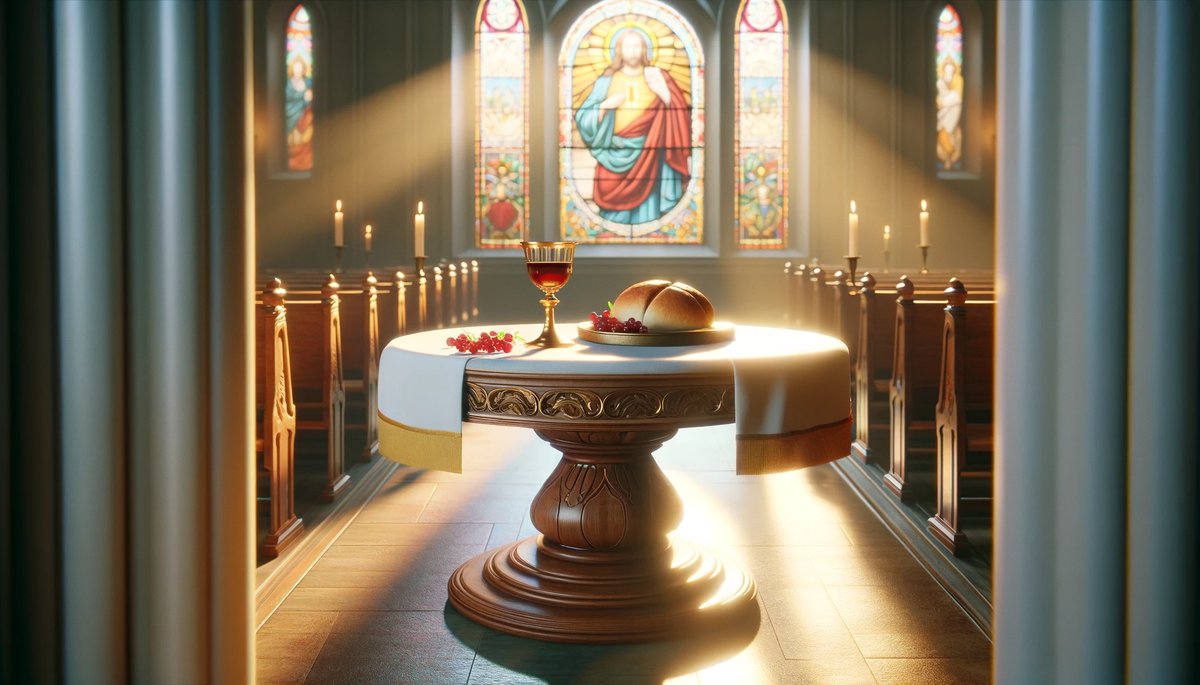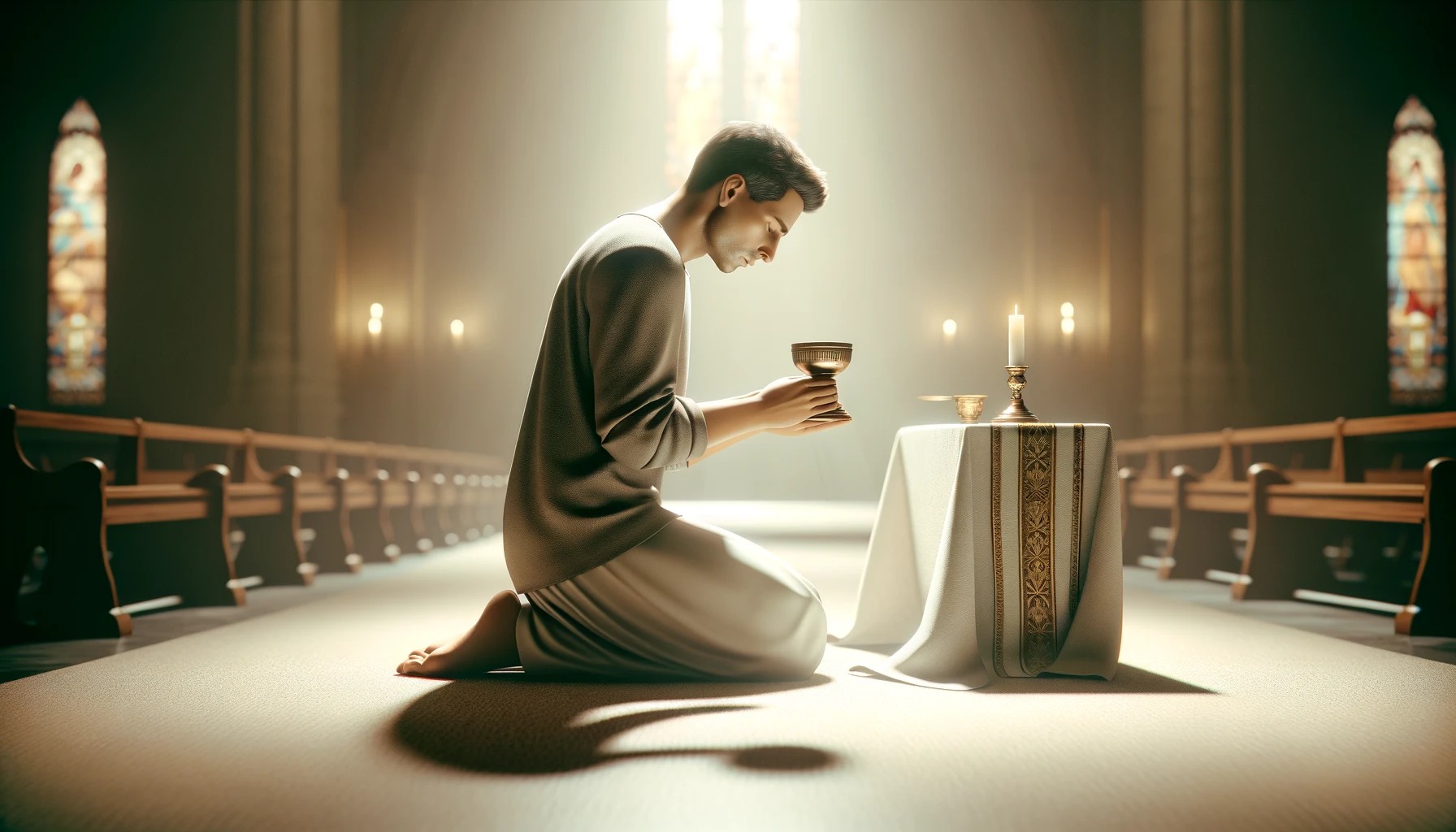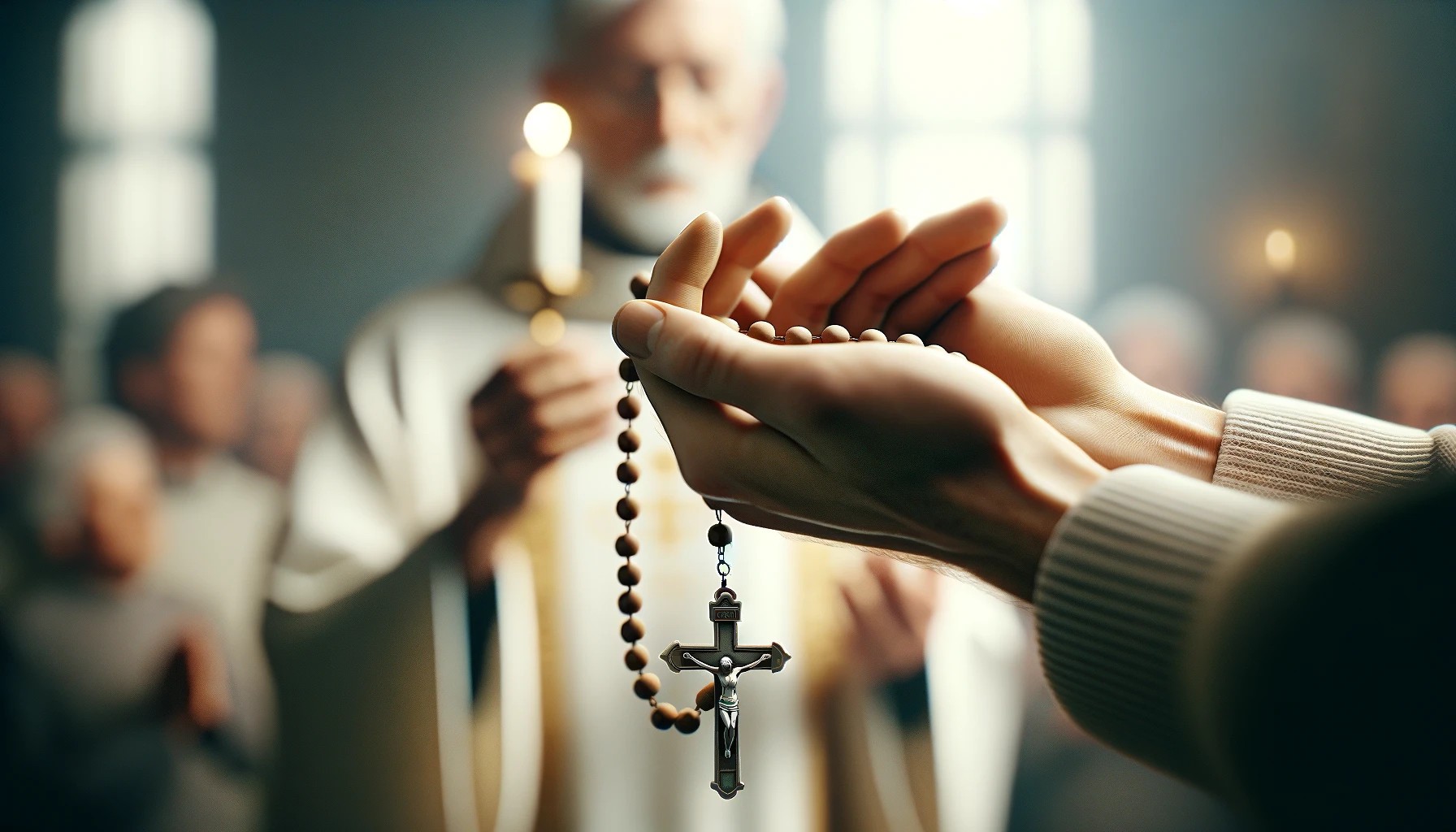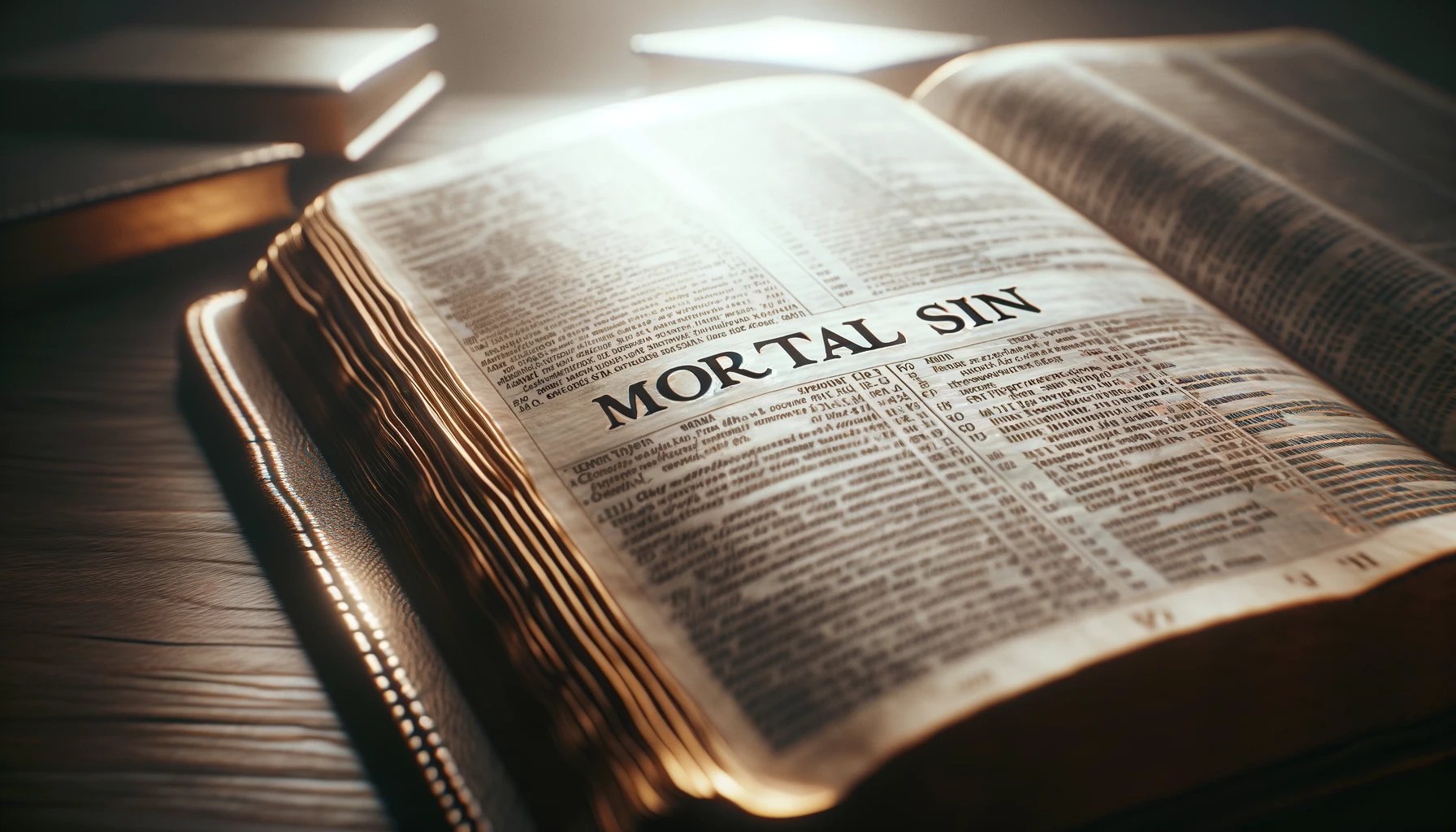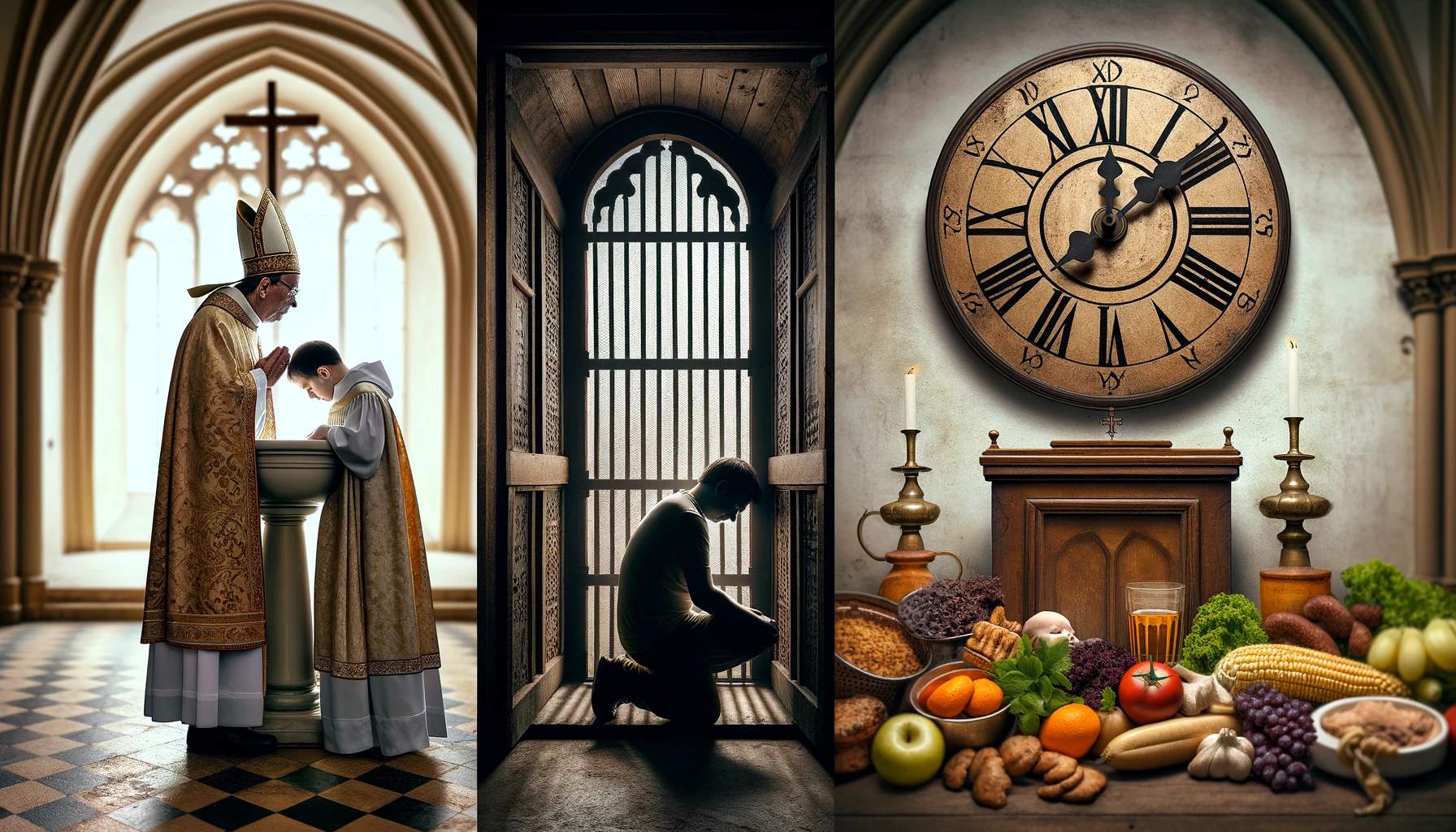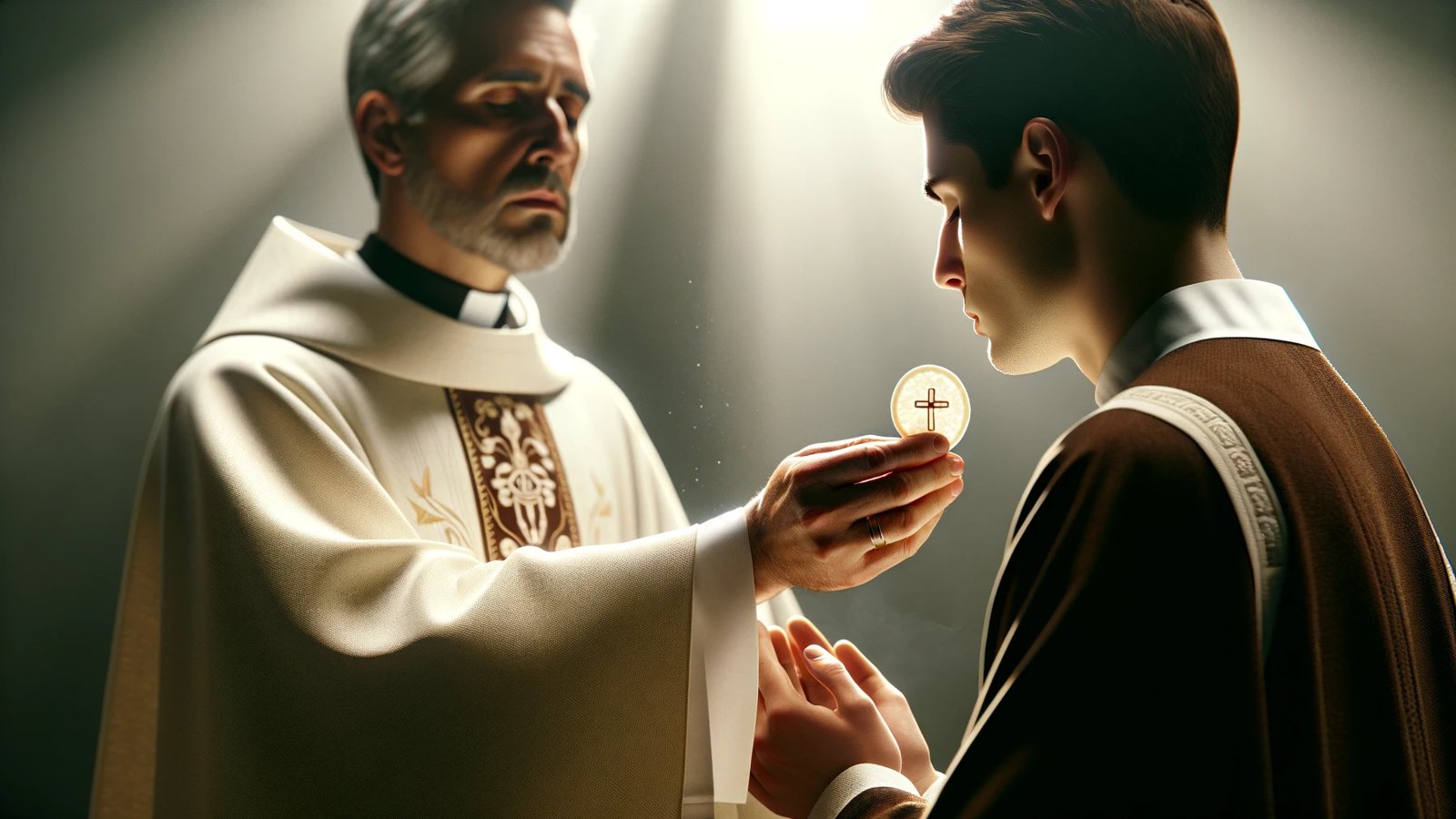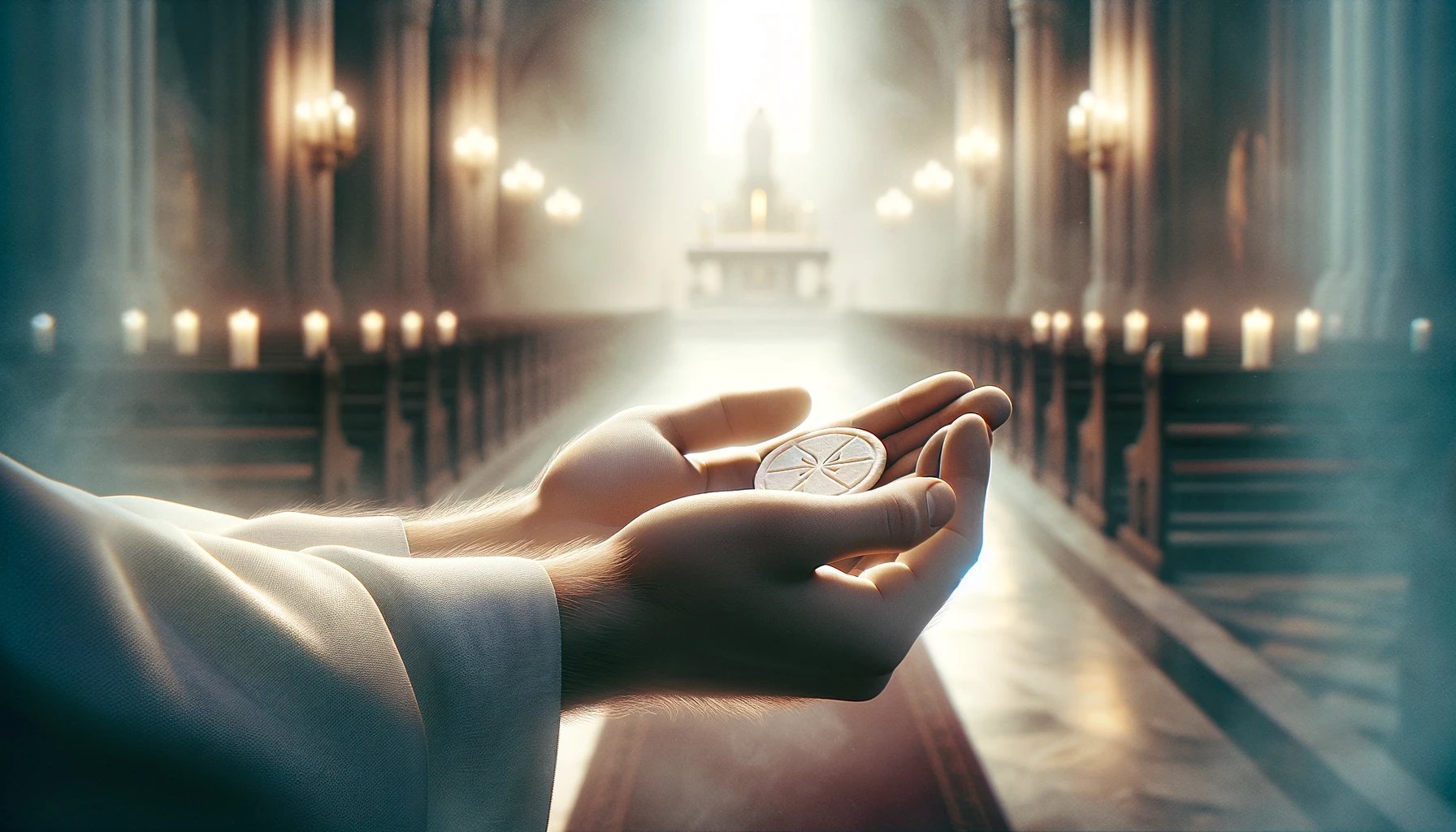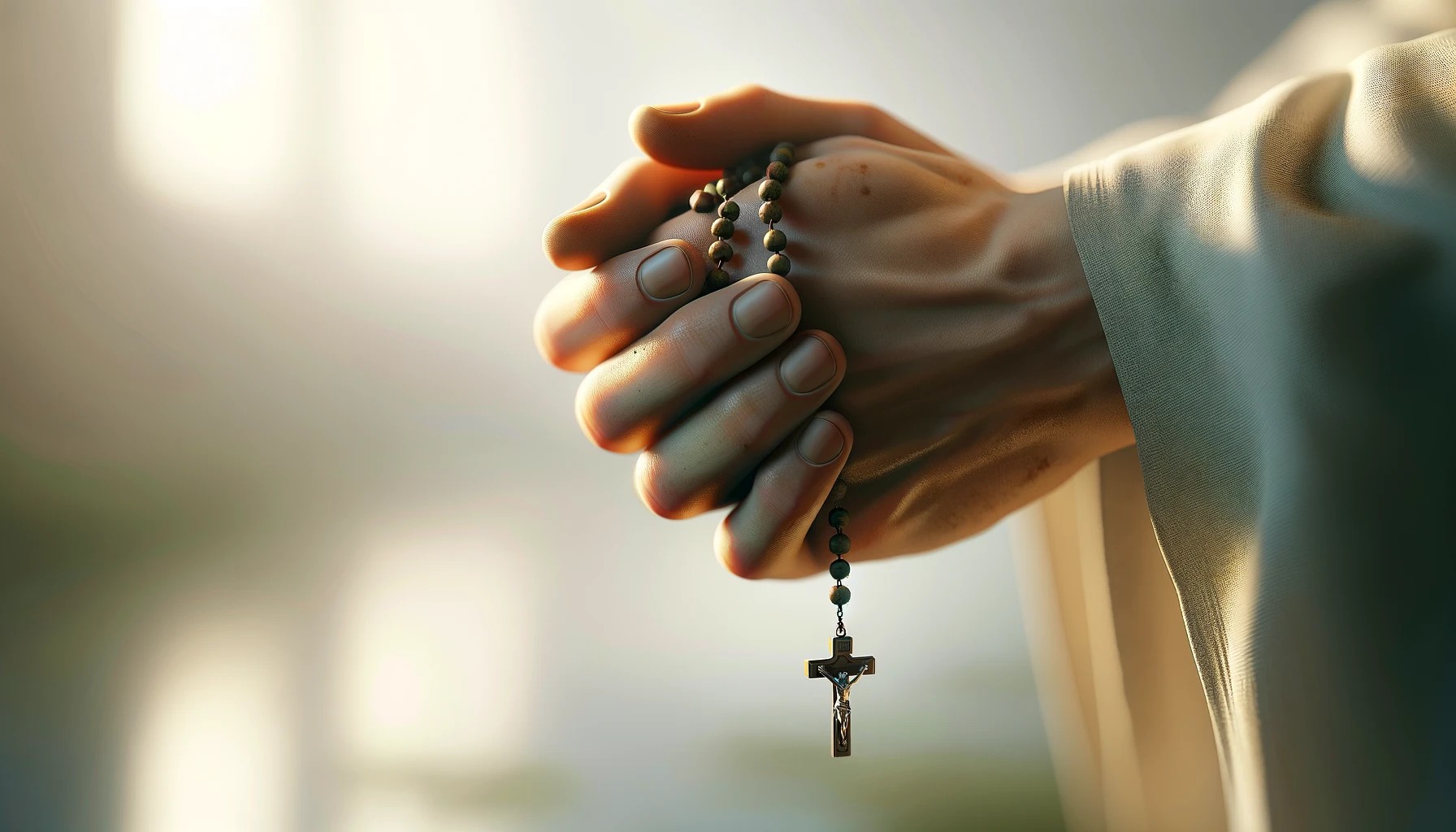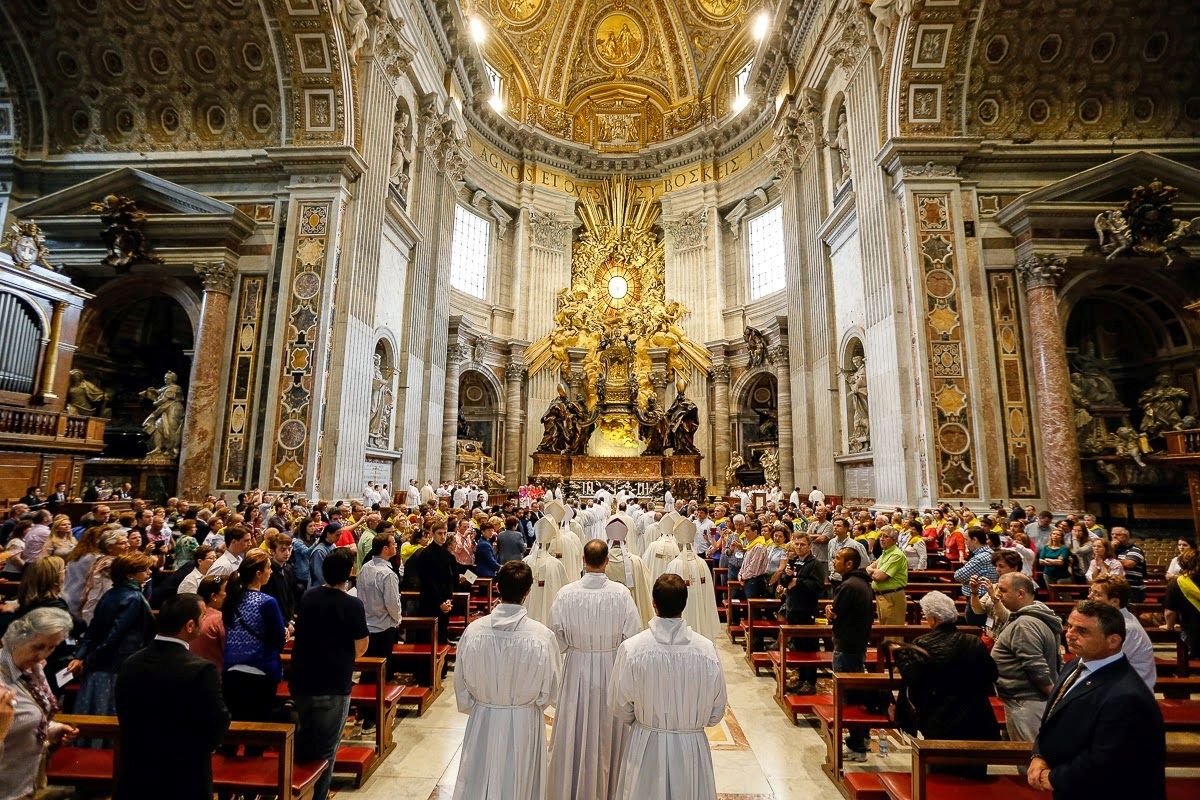Home>Theology and Spirituality>How Late Can You Come To Mass And Still Receive Communion


Theology and Spirituality
How Late Can You Come To Mass And Still Receive Communion
Published: February 25, 2024
Peter Smith, Editorial Director at Christian.net, combines deep insights into faith, politics, and culture to lead content creation that resonates widely. Awarded for his contributions to religious discourse, he previously headed a major organization for religious communicators, enhancing dialogue on faith's societal impacts.
Discover the guidelines for attending Mass and receiving Communion in the context of theology and spirituality. Learn how late you can arrive and still partake in the Eucharist.
(Many of the links in this article redirect to a specific reviewed product. Your purchase of these products through affiliate links helps to generate commission for Christian.net, at no extra cost. Learn more)
Table of Contents
Introduction
Attending Mass and receiving Communion are central aspects of the Catholic faith, symbolizing the spiritual nourishment and communion with God and the community of believers. However, life's demands and unforeseen circumstances can sometimes lead to arriving late for Mass. This raises the question: How late can you come to Mass and still receive Communion?
In this article, we will explore the significance of Mass and Communion, the guidelines provided by the Church regarding late arrival to Mass, and the factors to consider when finding oneself in this situation. Additionally, we will delve into the topic of receiving Communion after arriving late to Mass, providing insights that can help individuals navigate this aspect of their faith with understanding and reverence.
As we embark on this exploration, it's important to approach this topic with a spirit of curiosity and a desire to deepen our understanding of the Church's teachings and traditions. Let's journey together to unravel the nuances of attending Mass and receiving Communion, seeking clarity and wisdom to enrich our spiritual lives.
Read more: How To Receive Communion In The Hand
Understanding the Importance of Mass and Communion
Mass, also known as the Eucharist, holds profound significance in the Catholic faith. It is a sacred gathering where the faithful come together to commemorate the Last Supper, during which Jesus instituted the Eucharist as a memorial of His sacrifice. The act of receiving Communion, the consecrated bread and wine, is a pivotal moment during the Mass, representing the spiritual nourishment and unity with Christ and the community of believers.
The Mass is not merely a religious obligation; it is a sacred encounter with the divine. It serves as a time of worship, reflection, and communal prayer, allowing individuals to express their devotion and gratitude to God. Through the liturgy, readings, and homily, the faithful are invited to deepen their understanding of the Scriptures and apply their teachings to their daily lives.
Communion, as the central sacrament of the Catholic Church, holds profound spiritual significance. It is believed to be the true body and blood of Christ, a tangible manifestation of His presence among the faithful. By partaking in Communion, individuals symbolically unite themselves with Christ, expressing their desire to be spiritually nourished and transformed by His grace.
The act of receiving Communion is a solemn and reverent moment, signifying the believer's commitment to their faith and their ongoing spiritual journey. It is a tangible expression of their belief in the real presence of Christ in the Eucharist and their desire to be in communion with Him and the community of believers.
Understanding the importance of Mass and Communion involves recognizing these sacred elements as foundational to the Catholic faith. They provide spiritual sustenance, foster a sense of community, and offer a profound opportunity for individuals to deepen their relationship with God. As we delve into the guidelines and considerations related to attending Mass and receiving Communion, it is essential to approach these practices with reverence, understanding, and a desire to fully engage in the spiritual richness they offer.
The Church's Guidelines on Late Arrival to Mass
The Catholic Church, recognizing the diverse circumstances that individuals may encounter, provides guidelines regarding late arrival to Mass. While punctuality is encouraged as a sign of respect for the sacred liturgy, the Church acknowledges that unforeseen situations may cause individuals to arrive late. It is important to understand the Church's stance on this matter and the principles that guide its approach to late arrival at Mass.
The Church emphasizes the significance of active participation in the Mass, encouraging the faithful to be present for the entire liturgical celebration. However, it recognizes that arriving late may sometimes be unavoidable due to factors such as traffic, family responsibilities, or unexpected events. In such cases, the Church offers guidance to help individuals navigate the situation with reverence and understanding.
According to the Church's guidelines, individuals who arrive late to Mass are still encouraged to join the congregation in worship. While it is ideal to be present from the beginning of the liturgy, latecomers are not barred from entering the church or participating in the remaining parts of the Mass. The Church extends a welcoming attitude, emphasizing the importance of making the most of the opportunity to engage in communal prayer and receive spiritual nourishment.
It is essential for latecomers to approach their participation in the Mass with a spirit of humility and attentiveness. Upon entering the church, they are encouraged to do so reverently, minimizing disruption and displaying respect for the ongoing liturgical celebration. Finding a seat discreetly and participating in the prayers, readings, and rituals to the best of their ability reflects a sincere commitment to engaging in the sacred gathering.
While the Church's guidelines acknowledge the reality of late arrival to Mass, they also underscore the importance of striving for punctuality whenever possible. Cultivating a habit of arriving early for Mass demonstrates a deep reverence for the Eucharistic celebration and allows individuals to prepare themselves spiritually for the encounter with Christ in the liturgy.
By understanding and adhering to the Church's guidelines on late arrival to Mass, individuals can navigate this aspect of their faith journey with a sense of responsibility, respect, and a commitment to active participation in the sacred liturgy.
Factors to Consider When Arriving Late to Mass
When finding oneself in the situation of arriving late to Mass, several factors come into play, guiding individuals in navigating this circumstance with reverence and mindfulness. Understanding these factors can help latecomers approach the remainder of the liturgical celebration with a sense of spiritual attentiveness and respect for the sacred gathering.
Unforeseen Circumstances
Unforeseen events, such as unexpected traffic, family emergencies, or other unavoidable delays, can contribute to arriving late to Mass. It is important for individuals to acknowledge that certain circumstances may be beyond their control, leading to tardiness despite their best intentions. Recognizing the impact of these unforeseen events can help latecomers approach the situation with understanding and a spirit of humility.
Read more: How To Receive Communion On The Tongue
Reverence and Respect
Upon entering the church after the Mass has commenced, latecomers are called to demonstrate reverence and respect for the ongoing liturgical celebration. Finding a seat discreetly, minimizing disruption, and participating in the prayers and rituals to the best of their ability reflect a sincere commitment to engaging in the sacred gathering. By approaching the remaining part of the Mass with a spirit of reverence, latecomers can contribute to the atmosphere of worship and communal prayer.
Spiritual Preparation
While arriving late to Mass may disrupt the ideal flow of participation, individuals can use this time to engage in spiritual preparation and reflection. Taking a moment to center oneself, offering a silent prayer, and seeking to enter into the spirit of the liturgy can help latecomers transition into the sacred space of the Mass. Embracing this opportunity for spiritual connection can enrich the remaining part of the liturgical celebration and foster a deeper sense of communion with God and the faith community.
Commitment to Active Participation
Late arrival to Mass does not diminish the opportunity for active participation in the remaining parts of the liturgical celebration. Individuals are encouraged to join the congregation in worship, participating in the prayers, responses, and communal rituals with sincerity and attentiveness. Embracing this commitment to active participation demonstrates a genuine desire to engage in the spiritual richness offered by the Mass, despite the timing of arrival.
Cultivating Punctuality
Reflecting on the factors that led to arriving late to Mass can inspire individuals to cultivate a habit of punctuality for future liturgical gatherings. While unforeseen circumstances may occasionally disrupt one's plans, striving to arrive early for Mass whenever possible demonstrates a deep reverence for the Eucharistic celebration and allows individuals to prepare themselves spiritually for the encounter with Christ in the liturgy.
By considering these factors when arriving late to Mass, individuals can navigate this aspect of their faith journey with mindfulness, humility, and a commitment to active participation in the sacred liturgy.
Read more: How Do You Receive Holy Communion
Receiving Communion After Arriving Late to Mass
Arriving late to Mass can raise questions about the appropriateness of receiving Communion. The act of receiving the Eucharist holds profound spiritual significance, symbolizing the believer's unity with Christ and the community of faith. When faced with the situation of arriving late to Mass, individuals may wonder about the protocol for receiving Communion and how to approach this aspect of the liturgical celebration with reverence and understanding.
The Catholic Church provides guidance on receiving Communion after arriving late to Mass. Latecomers who have missed the introductory rites, Liturgy of the Word, and the homily are still encouraged to participate in the Eucharistic celebration and receive Communion, provided they are properly disposed and in a state of grace. Proper disposition involves being in a state of repentance for any grave sins, having observed the Eucharistic fast, and approaching the sacrament with reverence and devotion.
Latecomers are invited to approach the reception of Communion with a spirit of humility and attentiveness, recognizing the solemnity of the moment and the profound significance of partaking in the body and blood of Christ. While arriving late may disrupt the ideal flow of participation in the Mass, individuals are called to embrace the opportunity for spiritual nourishment and communion with Christ and the faith community through the reception of the Eucharist.
It is essential for latecomers to approach the reception of Communion with a sincere desire to be in communion with Christ and the Church. By participating in the communal ritual of receiving the Eucharist, individuals express their commitment to their faith and their ongoing spiritual journey. This act of communion signifies the believer's belief in the real presence of Christ in the Eucharist and their desire to be spiritually nourished and transformed by His grace.
Late arrival to Mass does not preclude individuals from receiving Communion, provided they fulfill the necessary spiritual and sacramental requirements. By approaching the reception of the Eucharist with reverence, humility, and a genuine desire for spiritual communion, latecomers can partake in this sacred sacrament with the same devotion and commitment as those present from the beginning of the liturgical celebration.
In navigating the aspect of receiving Communion after arriving late to Mass, individuals are called to approach this sacred moment with a deep sense of reverence, understanding, and a commitment to actively participating in the Eucharistic celebration, despite the timing of their arrival.
Conclusion
In conclusion, the question of how late one can arrive at Mass and still receive Communion is a topic that invites contemplation and understanding within the context of the Catholic faith. The significance of the Mass and the act of receiving Communion cannot be understated, as they represent the spiritual nourishment, unity with Christ, and communal worship that form the core of the Catholic tradition.
Understanding the Church's guidelines on late arrival to Mass provides a framework for navigating this situation with reverence and respect. While punctuality is encouraged as a sign of devotion and respect for the sacred liturgy, the Church acknowledges that unforeseen circumstances may lead individuals to arrive late. The emphasis on active participation and the welcoming attitude extended to latecomers underscore the Church's desire for all individuals to engage in the communal worship and spiritual nourishment offered by the Mass.
Factors such as unforeseen circumstances, reverence and respect, spiritual preparation, commitment to active participation, and the cultivation of punctuality play a role in guiding individuals who find themselves arriving late to Mass. These considerations encourage latecomers to approach the remainder of the liturgical celebration with mindfulness, humility, and a genuine commitment to engaging in the sacred gathering.
Receiving Communion after arriving late to Mass is approached with a similar spirit of reverence and understanding. The Church's guidance emphasizes the importance of proper disposition and a sincere desire for spiritual communion when partaking in the Eucharist. Latecomers are invited to approach the reception of Communion with humility, recognizing the solemnity of the moment and the profound significance of uniting with Christ and the faith community through this sacred sacrament.
In navigating the complexities of arriving late to Mass and receiving Communion, individuals are called to approach these aspects of their faith journey with a deep sense of reverence, understanding, and a commitment to actively participating in the Eucharistic celebration, regardless of the timing of their arrival. By embracing the Church's guidance and the spiritual principles underlying these practices, individuals can enrich their spiritual lives and deepen their connection to the sacred traditions of the Catholic faith.
